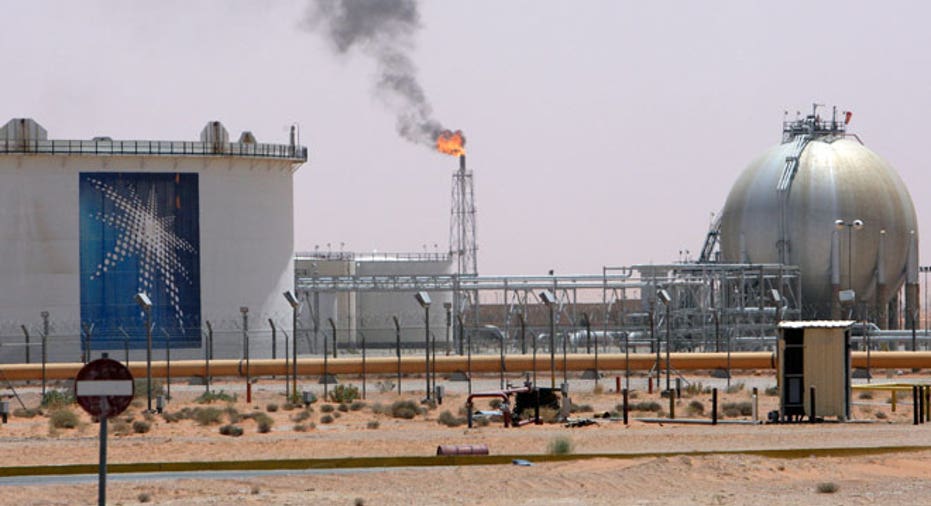Saudi Op-Ed Leaves Some Demanding: Show Us the Oil

Doing its best Ben Bernanke (or maybe Greg Smith?) impression, Saudi Arabia took the somewhat unusual step this week of penning an Op-Ed to make its case that global oil prices are too high.
But by writing a letter to the Financial Times, the world’s largest supplier of oil has left some in the energy markets wondering one question: If Saudi Arabia truly wants to lower prices, why doesn’t it simply produce more oil?
“The world needs proof of barrels, not words, and Saudi Arabia for now is delivering the latter rather than the former,” Olivier Jakob, managing director at Petromatrix, wrote in a note. “Writing an Op-Ed is nice, but it also shows that you either do not want or can’t produce more.”
In the Op-Ed, Saudi oil minister Ali Naimi renews the Middle Eastern country’s promise to step up production to make up for any supply disruptions. Fears that a conflict with Iran will cause supplies to plunge have helped send crude beyond $110 a barrel this year.
“We want to correct the myth that there is, or could be, a shortage. It is an irrational fear, a fear without basis,” Naimi writes. “There is no rational reason why oil prices are continuing to remain at these high levels….This is not empty rhetoric. We have proved to be a reliable supplier many times in the past.”
Don't 'Fight' the Saudis?
The Op-Ed move seems reminiscent of the Federal Reserve, which can influence global financial markets by simply hinting at shifting course on monetary policy. Burned too many times by not believing in the central bank’s power, traders have a motto: “Don’t fight the Fed.”
But there is a big difference between Saudi Arabia and the Fed. While the Fed can always simply print more dollars, the Saudis don’t have a limitless supply of oil and seem to be suffering a credibility problem.
“The Saudis are the Fed of the oil markets. If they came out today and said, ‘We need to go to 9 million barrels per day in the second half of the year,’ that would have tremendous impact,” said Tom Kloza, chief oil analyst at the Oil Price Information Service. “On the other hand, people aren’t totally sure they’re being honest when they say they can go to 12.5 million barrels per day.”
Likewise, even if the Saudis were able to ramp up production to make up for the estimated 800,000 barrels per day that Iran would lose due to tough sanctions, it likely wouldn’t be the light, sweet crude that the market craves.
Naimi insists that Saudi oil is “suitable, and acceptable, for most global refineries,” but skepticism remains.
Demand Destruction
Still, the Op-Ed does highlight a key lesson the Saudis seem to have learned from the 2008 oil-price shock: there is such a thing as demand destruction. While elevated prices may be welcomed, and perhaps even needed to balance the Saudi budget, they don’t want to risk killing their “golden goose” through prices so high that businesses and consumers drastically cut back.
Saudi Arabia “would like to see a fair and reasonable price that will not hurt the global economic recovery, especially in emerging and developing countries,” Naimi writes.
“They like high prices. Like everyone, they get seduced by them,” said Kloza. However, he adds, “I think they’re smart and they don’t want to risk a golden goose scenario again.”
Dissecting Supply
Naimi also makes a point that most can agree with: there doesn’t seem to be a fundamental supply-and-demand justification for oil prices at this level.
The U.S. Energy Department said crude oil inventories surged by 7.1 million barrels last week, marking the largest increase since July 2010. Supplies now stand at 353.39 million barrels -- their highest levels since last August.
“Domestically, there really is no supply-and-demand problem right now. We’ve got plenty of supply to meet demand. The market spreads are showing us that,” said Darin Newsom, senior commodities analyst at DTN.
However, Newsom acknowledges that globally crude oil, especially Brent crude, is used as a hedge against geopolitical events such as an Israeli attack on Iran.
Not even the Federal Reserve has the power to stop that.



















